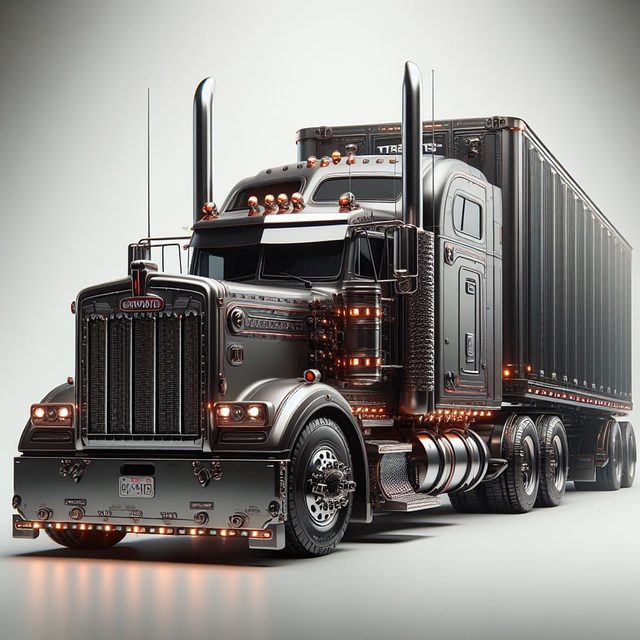Starting a trucking business requires balancing best coverage with affordability. Comprehensive trucking insurance including liability, physical damage, and cargo insurance startups protects investments while keeping overheads low. Tailored insurance plans that cater to fleet size, experience, and vehicle type enable new businesses to manage risks efficiently, facilitating growth in the competitive trucking industry. By understanding specific hazards and evaluating quotes from multiple insurers, startups can secure adequate protection without overspending.
In the dynamic landscape of startup trucking, balancing cost and quality in insurance policies is paramount. New trucking businesses face unique challenges, from managing fluctuating fuel prices to ensuring their fleet’s safety amidst competitive pressures. This article delves into understanding these specialized needs, emphasizing the importance of comprehensive trucking insurance for startups. We explore tailored insurance plans that offer both robust protection and affordability, highlighting best practices for cargo insurance in emerging fleets, including liability coverage and physical damage insurance, to help startups navigate risks effectively while staying financially resilient.
Understanding the Unique Needs of Startup Trucking Businesses

Starting a trucking business presents unique challenges that necessitate tailored insurance plans offering both comprehensive coverage and cost-effectiveness. New trucking businesses often face tight margins, making it crucial to secure best coverage that protects their investments while keeping overhead affordable. This includes essential components such as liability coverage for potential damages caused by accidents involving their fleet, physical damage insurance to safeguard against loss or repair costs for vehicles, and cargo insurance to mitigate risks associated with transporting goods.
Understanding these needs allows insurers to design tailored insurance plans that address specific hazards faced by startup trucking operations. By offering flexible options catering to varying levels of risk and budget constraints, startups can ensure they have adequate protection without overspending on unnecessary coverage. This approach enables young businesses to focus on growth and expansion while managing risks efficiently, ultimately contributing to their long-term success in the competitive trucking industry.
The Importance of Comprehensive Trucking Insurance

For new trucking businesses, securing comprehensive trucking insurance is paramount to their success and longevity. In an industry where unexpected events can lead to significant financial losses, having robust coverage provides a safety net that protects startups from devastating economic impacts. The best coverage for these new fleets should include liability insurance to safeguard against claims arising from accidents or damage to cargo, ensuring the startup remains compliant with legal obligations and minimizes financial exposure.
Additionally, tailored insurance plans should incorporate physical damage coverage to protect the actual vehicles, which are often a significant investment for startups. This ensures that in the event of collisions, natural disasters, or other perils, the business can repair or replace their trucks without incurring substantial out-of-pocket expenses. By combining these elements, startups can achieve the right balance between cost and quality in their insurance policies, enabling them to focus on growth while mitigating potential risks effectively.
Creating Tailored Insurance Plans: Balancing Cost and Quality

New startups in the trucking industry often face a delicate balance when it comes to crafting their first insurance policies. While ensuring comprehensive coverage is paramount for protecting their assets, including vehicles and cargo, they must also manage cash flow constraints typical of nascent businesses. This duality calls for tailored insurance plans that offer the best coverage for new trucking businesses without breaking the bank.
Creating these plans involves a strategic approach to risk assessment and policy design. Insurers can offer affordable trucking policies by segmenting risks based on fleet size, driver experience, and vehicle type. For startups with limited operations, basic liability coverage and physical damage insurance can provide robust protection at a manageable cost. As the business grows and expands its fleet, insurers can then introduce additional policies like cargo insurance for startups, catering to their evolving needs while maintaining quality without compromising financial stability.
Affordability Meets Protection: Best Practices for Cargo Insurance in Startups

For startups venturing into trucking and logistics, balancing cost and quality in insurance is paramount. Affordability is a primary concern for new businesses with limited capital, but sacrificing coverage can lead to significant risks. The key lies in securing best coverage for new trucking businesses that offers both comprehensive trucking insurance and startup fleet coverage. This includes tailored insurance plans that balance liability coverage for new fleets and physical damage insurance with competitive pricing.
Opting for affordable trucking policies doesn’t mean compromising on protection. Smart startups should focus on understanding their specific needs, evaluating risks, and comparing quotes from multiple insurers. This strategic approach ensures they secure adequate cargo insurance for startups while managing costs effectively. By prioritizing comprehensive yet cost-conscious coverage, new trucking ventures can navigate the road ahead with confidence, knowing they’re shielded against potential losses.
For startup trucking businesses aiming for both financial prudence and robust protection, it’s key to focus on tailored insurance plans that balance cost and quality. Opting for comprehensive trucking insurance that includes best-in-class coverage for liability, cargo, and physical damage will ensure your fleet’s safety without breaking the bank. By implementing affordable trucking policies with a keen eye towards specific needs, new fleets can access the ideal startup fleet coverage, fostering growth while minimizing financial strain.
